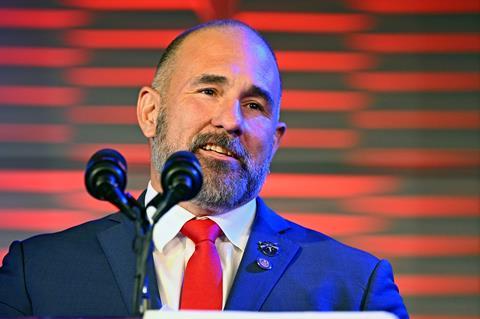Regulation of litigation funding in the US has taken a huge step forward with Florida senators backing a host of new rules.
A committee of the Florida Senate last week voted through a bill on litigation financing which will restrict the sums that can be claimed back and force greater disclosure about funding agreements.
The reforms are potentially the biggest step yet toward regulation of the industry in the US. Florida is the country’s third biggest state and others – under heavy lobbying from business groups – are legislating to change their own rules. They include Kansas, Rhode Island and Arizona.
The Florida bill includes a ban on financiers from directing the course of legal proceedings and from recovering more of the proceeds of a case than the litigant.
Lawyers and their clients would have to disclose any litigation financing agreements or any relationships they have with foreign or domestic funders.
The legislation includes provision for a ‘veil’ to prevent the opposing side from knowing all the financial details of the funding arrangement, but the court can order full disclosure if it is in the best interests of justice.
Introducing the bill, Senator Jay Collins, a Republican, said litigation funders were ‘influencing legal strategy, fuelling unmeritorious law suits or exposing our nation to foreign powers without knowing their motives’.

He cited a case from last year when both parties had agreed to settle their dispute but this was refused by one side’s funder, who wanted to continue proceedings. This led to litigation between the client and the funder, which the Senate heard was part-owned by Saudi Arabia.
A representative of the US Chamber Institute for Legal Reform, which campaigns for regulation of litigation funding, told the debate: ‘[Financiers] operate in the shadows and they would like to keep it that way. For years they have said there is nothing to see here but we have mounting evidence that they are influencing legal strategy to fuel their own profits in conflict with the litigant’s best interests.
‘We don’t want to restrict ingenuity and commerce, we just want to put some safeguards there.’
The bill will be laid for approval in the House of Representatives and Florida Senate before it goes before Republican Governor Ron DeSantis for final endorsement.
Responding to the bill, the International Legal Finance Association (ILFA), a group representing litigation funders, said the legislation is based on misinformation and lack of understanding of commercial legal finance.
'The false national security concerns have been created from whole cloth by the US Chamber of Commerce and insurance industry that has proven it doesn’t have Floridians’ best interest in mind,' the group added. 'ILFA is actively engaged with the Florida legislature and is confident that lawmakers will see through their smokescreen and recognise the industry’s value to the rule of law.'
The US and the UK have both been reluctant to regulate litigation funding, instead relying on voluntary codes of conduct and existing legal regulatory obligations on lawyers to act ethically. In his review of legal costs in March 2018, Sir Rupert Jackson said litigation funders allowed parties to pursue claims when they would not otherwise be able to afford it. Jackson reflected that funders are ‘highly experienced litigators and they exercise effective control over costs’.
The government has said it will legislate to reverse the effects of the Supreme Court PACCAR judgment last year, which said that the litigation funding agreement in question amounted to a damages-based agreement (DBA), contrary to what had been widely understood. Ministers have hinted that the government response will consider a ‘wider response’ to the issue of litigation funding.



























No comments yet